Orchestrating Fantasy: Epic Scores in Open-World Games
18 December 2024
Imagine riding at full tilt across a mesmerizing landscape, sword gripped tightly, the wind howling in your ears. Suddenly, a swell of violins and an electrifying drumbeat rise from the depths of your speakers, pulling you deeper into the moment. It’s not just any sound—you’re experiencing one of the most powerful elements of any open-world game: the music. The epic scores of these games don’t just sit in the background—they shape the entire world, turning pixels into palaces and quests into legends.
In this article, we’re diving headfirst into the magical synergy between open-world games and their scores. So, grab your headphones, press play on your favorite soundtrack, and let’s geek out a little about why music truly orchestrates fantasy in the most dynamic way possible!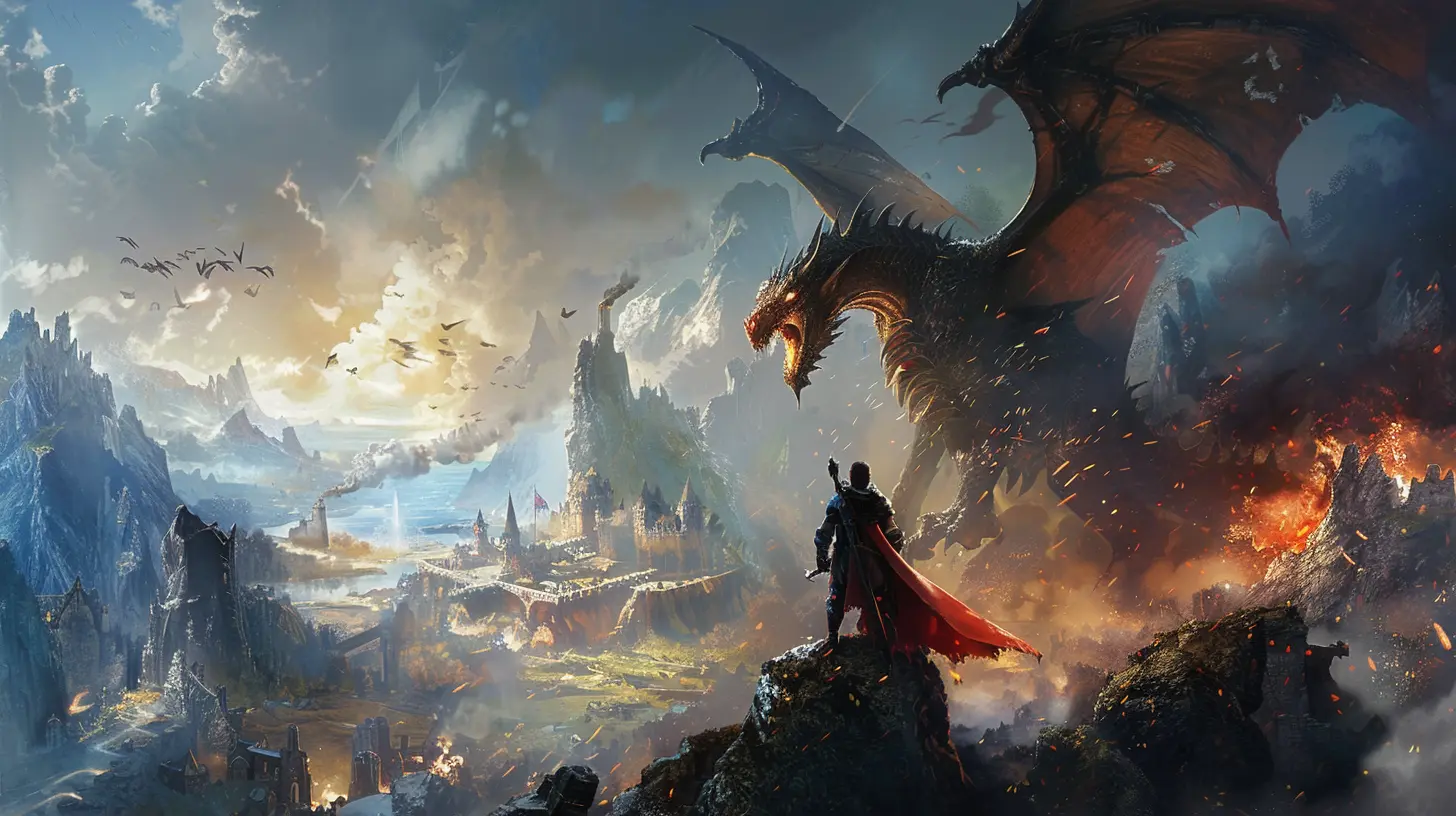
The Heartbeat of an Open World: Why Scores Matter
Let’s start with the basics—why do scores in open-world games even matter? I mean, sure, you could technically adventure through vast landscapes in complete silence, but would it feel the same? Absolutely not.Music is the soul of an open-world game. A masterfully crafted score doesn’t just fill the empty spaces; it breathes life into the universe you’re exploring. From the calm, ethereal tones of “The Legend of Zelda: Breath of the Wild” to the high-energy, adrenaline-pumping beats of “Cyberpunk 2077,” the music dictates how we feel and how we connect with the game world.
Think of it this way: music in a game acts like your invisible handrail. When an eerie track starts playing, you know danger might be lurking around the corner. When triumphant horns blast through your speakers, your heart races, knowing you’re about to achieve something monumental. Scores anchor us emotionally to the surroundings, making the adventure feel alive and personal.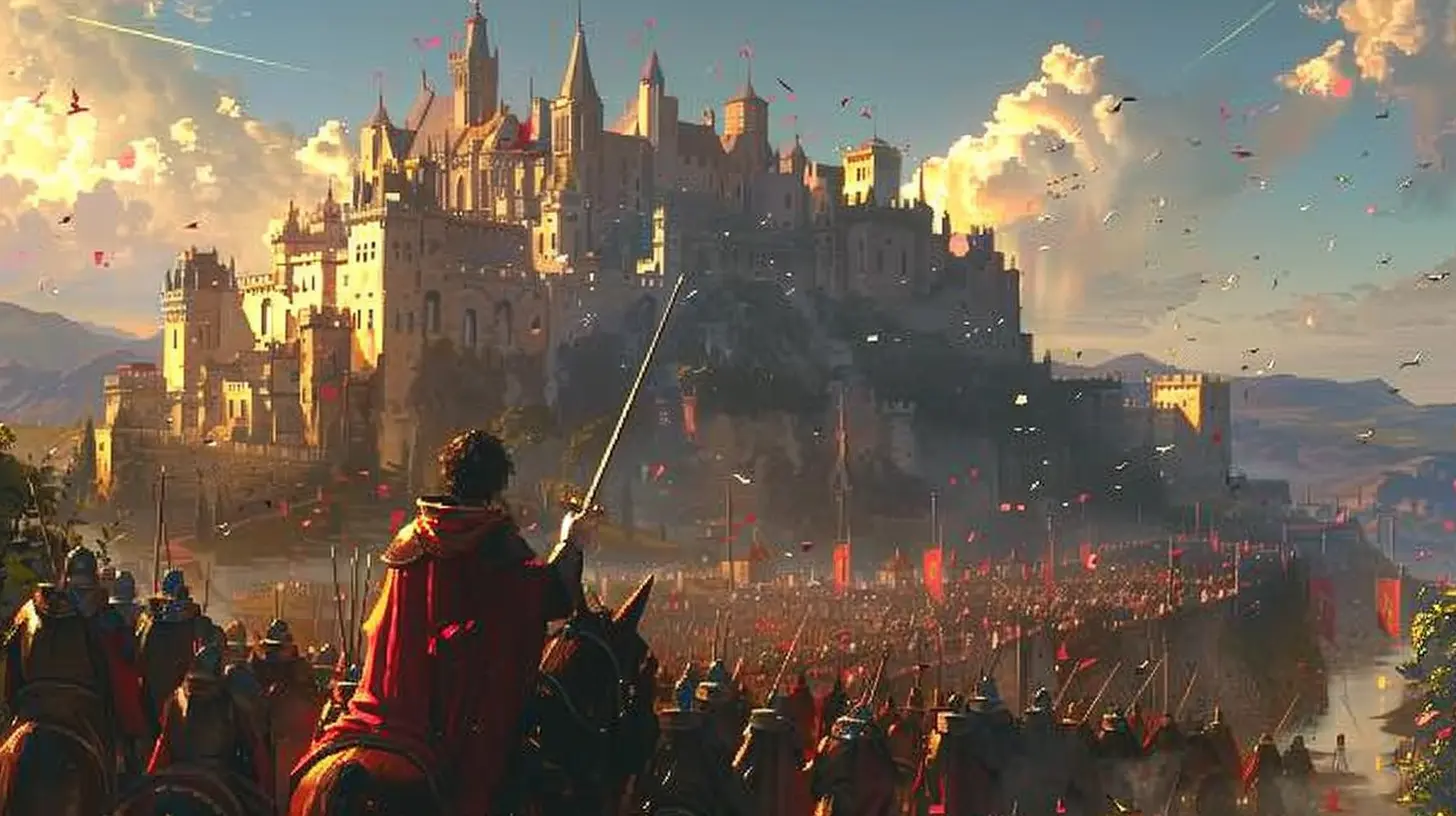
Setting the Stage: How Composers Build Worlds Through Sound
Now, let’s shine a light on the geniuses behind these orchestral masterpieces—the composers. People like Jeremy Soule ("Skyrim"), Yoko Shimomura ("Kingdom Hearts"), and Gustavo Santaolalla ("The Last of Us") are the unsung heroes of gaming.These maestros transform a game’s artistic vision into soundscapes that not only tell a story but amplify it. How do they do it? With a blend of musical mastery, emotional intelligence, and a pinch of wizardry, honestly. They use leitmotifs (recurring musical themes tied to characters or places), unique instrumentation, and orchestration styles to give each game its own identity.
For example, in “The Witcher 3: Wild Hunt,” composer Marcin Przybyłowicz leaned heavily into Slavic folk music to reflect Geralt’s gritty, medieval fantasy world. The choice of haunting vocals paired with regional instruments like the hurdy-gurdy immediately immerses you in its brutal, yet enchanting, world.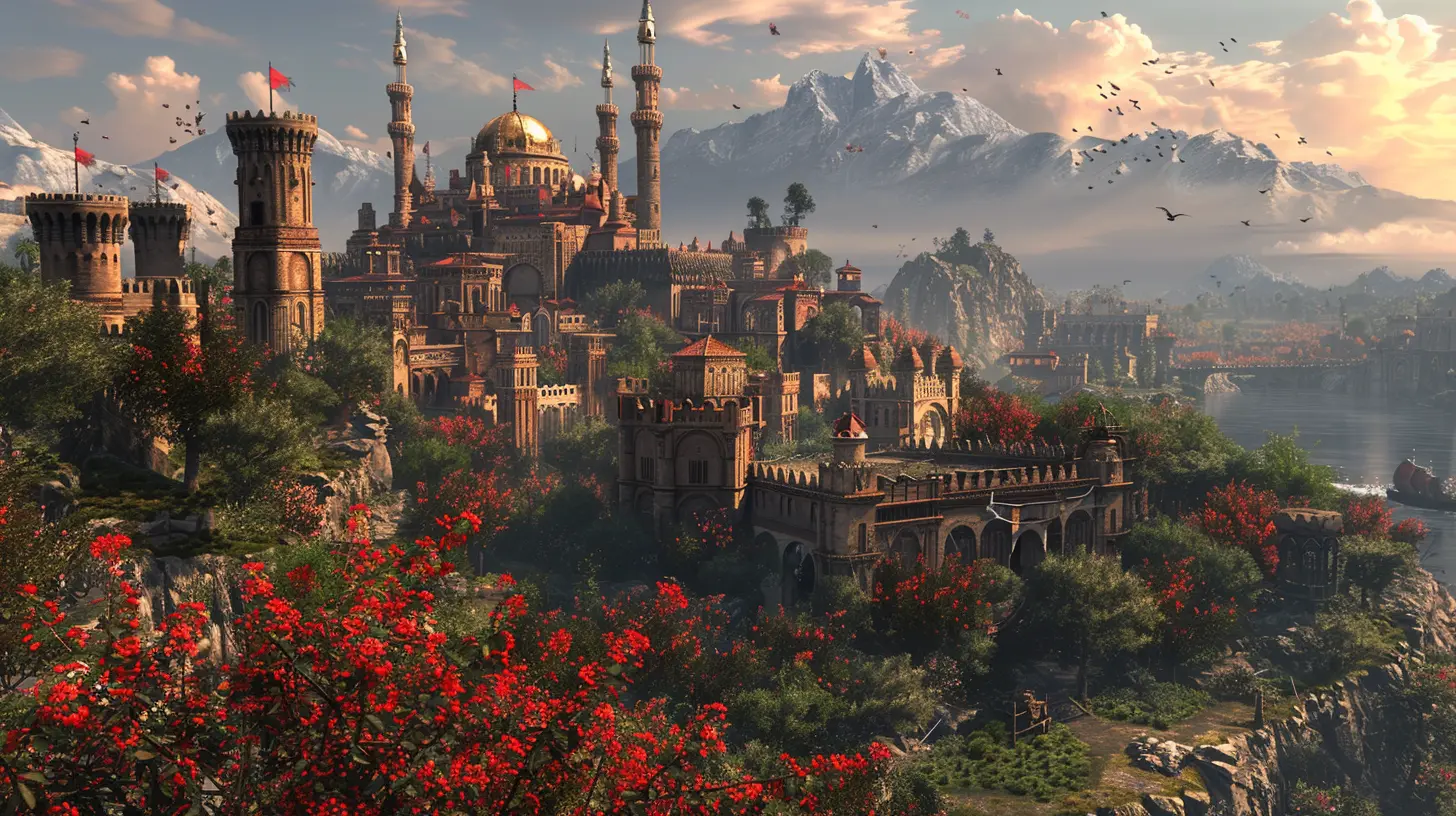
Dynamic Soundtracks: The Adaptive Magic
One of the coolest things about music in open-world games is how it adapts to what you’re doing. Dynamic soundtracks are basically the chameleons of the gaming music world. They shift and evolve based on your actions, making sure every interaction feels tailor-made.Let's break it down. Imagine you’re playing “Red Dead Redemption 2.” You’re just trotting through a quiet forest; the music’s subtle, calm, almost hesitant. But suddenly, a pack of wolves appears, and BOOM! The soundtrack kicks up to a frantic pace, matching the intensity of your situation. It's like the music is reading your mind—creepy in the best way possible, right?
This kind of adaptive music keeps you engaged. Instead of feeling static or repetitive, the soundtrack becomes an active participant in your journey.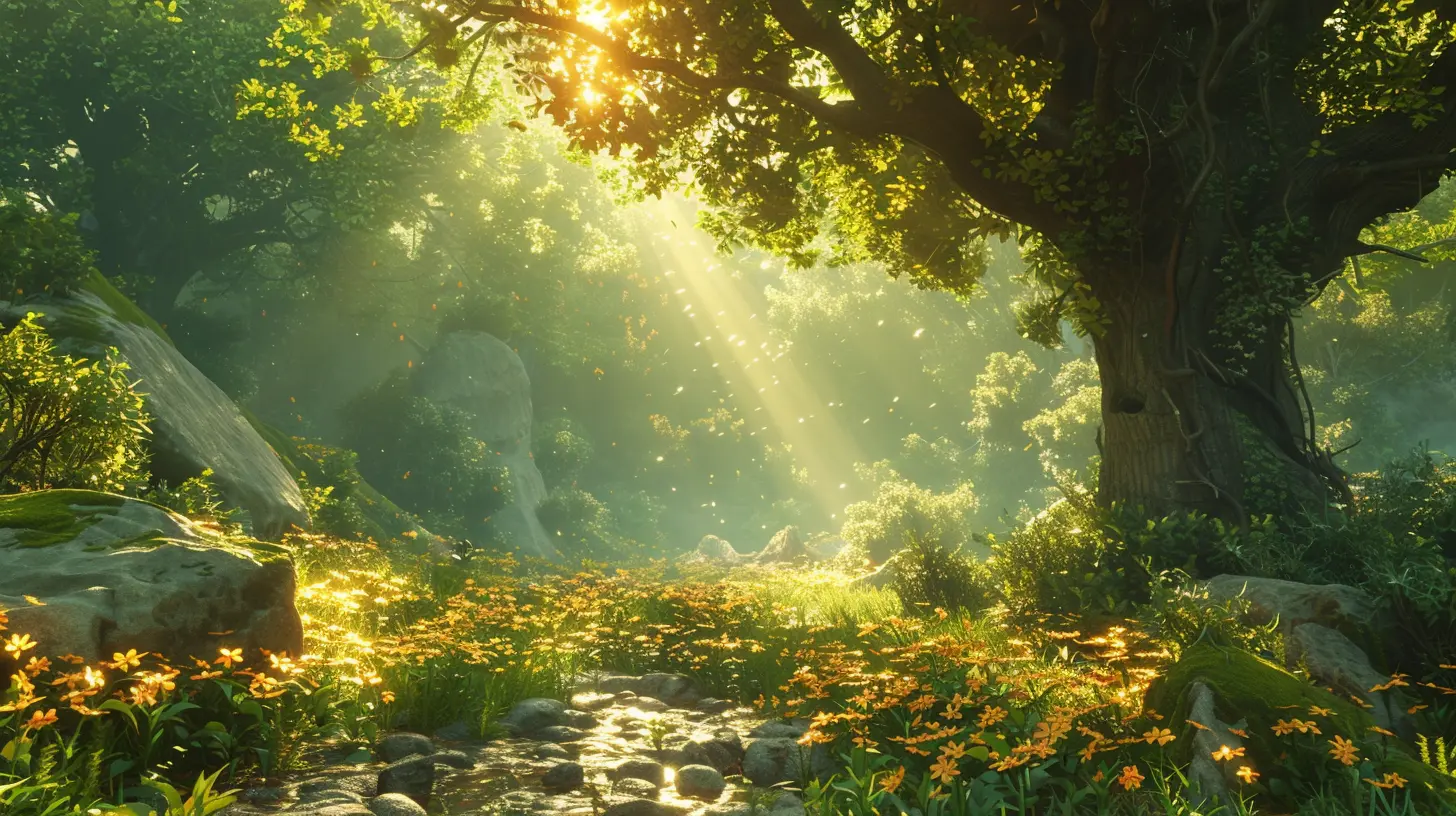
Iconic Open-World Scores We’ll Never Forget
While there are countless open-world games with jaw-dropping soundtracks, let’s gush about a few that have set the gold standard for epic scores.1. The Elder Scrolls V: Skyrim
Do you hear that? The distant chant of “Dovahkiin, Dovahkiin” already ringing in your head? Skyrim’s score, composed by Jeremy Soule, is nothing short of legendary. His use of a full choir singing in the fictional dragon language created one of the most iconic themes in gaming history. The music’s grandiose style perfectly complements the sprawling, snowy landscapes and the epic dragon battles.2. The Legend of Zelda: Breath of the Wild
Simple, yet stunning—that’s how I’d describe the music in this masterpiece. Instead of overwhelming you with booming orchestras, the soundtrack leans into delicate piano melodies and soft environmental tones. The result? A sense of tranquility and wonder as you climb mountains, glide through valleys, or simply watch the sunrise over Hyrule.3. Red Dead Redemption 2
The music of the Wild West has never felt more potent. Woody Jackson’s score for “Red Dead Redemption 2” is a symphony of twanging guitars, haunting violins, and perfectly timed harmonica riffs. The soundtrack knows exactly when to step forward and when to fade into the background, echoing the poignant solitude of Arthur Morgan’s journey.4. NieR: Automata
There’s nothing quite like the soundtrack of “NieR: Automata.” Keiichi Okabe crafted a mix of orchestral, electronic, and choral music that feels simultaneously melancholic and uplifting. Trust me, listening to “The Weight of the World” during the game’s intense moments will leave you misty-eyed.Emotional Precision: How Scores Tug on Our Heartstrings
What makes a good game soundtrack great? The way it makes you feel. A fantastic score can draw out emotions you didn’t even know you were capable of. It might make you pump your fist in triumph, bawl your eyes out, or even sit in awe as the credits roll (let's be real, we’ve all done that).Take “Shadow of the Colossus,” for instance. The orchestral score by Kow Otani feels both majestic and heart-wrenching as you battle towering colossi. The music mirrors the moral ambiguity of the game, leaving you questioning whether you’re the hero or the villain. That's the kind of emotional depth only a phenomenal soundtrack can deliver.
Or think about “Horizon Zero Dawn,” where Joris de Man combined lush strings with tribal-inspired percussion. Every time Aloy stands at the edge of a cliff, staring at the massive machines roaming the plains, the music swells, making you feel the enormity of the world and her role in it.
Why Soundtracks Stick With Us Long After Game Over
There’s a reason why some game soundtracks end up on our playlists, long after we’ve put down the controller. They transport us back to the game world, like musical portals. When you hear the “Halo” theme song or the opening notes of “Final Fantasy VII’s” Prelude, doesn’t it give you chills? That’s the magic of music—it has this uncanny ability to connect us with our memories.Game composers know this, and they harness it to leave a lasting impression. It’s why so many open-world games invest so much effort into crafting a score that’s not only immersive but unforgettable.
The Future of Sound: Where Are We Headed?
With technology advancing at warp speed, the future of gaming soundtracks is looking brighter than ever. We’re seeing the rise of AI-assisted composing tools, 3D spatial audio, and even more advanced dynamic music systems. Imagine a world where the soundtrack shifts not just based on your actions, but your emotions as well. Creepy? Maybe. Cool? Absolutely.There’s also a growing trend of bringing real-world artists into the gaming space. Games like “Cyberpunk 2077” recruited artists like Grimes and Run the Jewels to create original tracks that fit within their universe. Who knows? The next era of open-world scores might blend traditional orchestration with genres we’ve never even considered before.
Conclusion: More Than Just Background Noise
At the end of the day, the music in open-world games isn’t just background noise—it’s the unsung hero (pun intended). It sets the tone, drives the story, and helps us connect emotionally to a world that doesn’t actually exist. Whether you’re scaling mountains, fighting dragons, or simply enjoying a sunset in the digital realm, the music makes every moment unforgettable.So, next time you’re lost in an open-world game, pause for a moment and really listen. That score you’re hearing? It’s the heart of the adventure, beating in perfect harmony with your journey.
all images in this post were generated using AI tools
Category:
Original SoundtracksAuthor:

Audrey McGhee
Discussion
rate this article
12 comments
Diesel Foster
Epic scores elevate open-world games, enhancing immersion and emotional engagement for players.
February 8, 2025 at 5:08 AM

Audrey McGhee
Thank you! I completely agree—epic scores truly transform the open-world experience, deepening player immersion and emotional connection to the game.
Ronan McMeekin
Fantastic read! The impact of orchestral scores in open-world games is often overlooked. They elevate the experience, immersing players in vast landscapes and emotional journeys. Can't wait to see future soundtracks!
January 30, 2025 at 3:37 PM

Audrey McGhee
Thank you! I completely agree—the power of orchestral scores truly enhances the emotional depth and immersion in open-world experiences. Exciting times ahead for future soundtracks!
Parker Mullen
Absolutely love how epic scores elevate the gaming experience! It’s like having a personal soundtrack that makes every adventure unforgettable. 🎶✨
January 27, 2025 at 3:57 PM

Audrey McGhee
Thank you! Epic scores truly transform gaming, enhancing immersion and making every moment feel magical. 🎶✨
Sydney Strickland
Epic scores in open-world games elevate immersion, transforming exploration into a cinematic experience. It’s fascinating how music shapes our emotional connection to vast, virtual worlds.
January 23, 2025 at 4:00 PM

Audrey McGhee
Thank you! I completely agree—epic scores truly enhance immersion and deepen our emotional ties to expansive worlds, making exploration feel truly cinematic.
Wilder Romero
Epic scores elevate adventures!
January 17, 2025 at 5:32 PM

Audrey McGhee
Absolutely! Epic scores truly enrich the gaming experience, immersing players in the adventure and enhancing emotional connections.
Davina Chavez
Who knew orchestras could moonlight as dragon-slaying sidekicks? 🎻⚔️ In open-world games, epic scores not only set the stage for adventure but also make my cat think I'm a wizard. Every note is a spell—just hope I don’t accidentally summon the coffee maker again!" ☕✨
January 14, 2025 at 6:15 AM

Audrey McGhee
Absolutely! The power of orchestral scores transforms gaming into a magical experience—perfect for epic quests and feline companions alike! 🎶✨
Christina McQuillan
This article beautifully captures how orchestral scores elevate open-world games, enriching the player's experience. Music truly shapes our adventures and emotions in these expansive virtual landscapes.
January 8, 2025 at 4:23 AM

Audrey McGhee
Thank you! I’m glad you enjoyed the article and appreciate how much orchestral music enhances the immersive experience in open-world games.
Signe Hughes
Amidst sprawling landscapes and untold adventures, the true heartbeat of open-world games lies in their scores. Each note weaves a tale of mystery; could the melodies themselves hold the key to secrets waiting to be uncovered?
January 2, 2025 at 4:45 AM

Audrey McGhee
Absolutely! The score enhances the immersive experience, guiding players through the narrative and enriching their adventures, often hiding secrets in the melodies themselves.
Dulce Castillo
Level up your ears, gamers!
December 27, 2024 at 5:47 PM

Audrey McGhee
Absolutely! Epic scores elevate the gaming experience and immerse us in fantastical worlds. Let's tune in!
Michelle McClellan
Great insights on how music shapes the open-world experience! I'd love to see more examples of specific scores that enhanced gameplay in your future articles.
December 23, 2024 at 5:53 PM

Audrey McGhee
Thank you! I appreciate your feedback and will definitely include more specific score examples in future articles!
Emmett Franklin
This article beautifully captures the essence of how orchestral scores enhance the open-world gaming experience. The emotional depth and immersive atmosphere created by these soundtracks elevate storytelling and player engagement, making each adventure more memorable. It's a reminder of the powerful synergy between music and gameplay.
December 19, 2024 at 4:53 PM

Audrey McGhee
Thank you for your insightful comment! I'm glad you appreciate the synergy between orchestral scores and gameplay in creating memorable experiences.
Emory Diaz
Thank you for this insightful article! The way you highlighted the impact of orchestral scores in creating immersive experiences in open-world games is truly fascinating. It’s incredible how music can elevate storytelling and gameplay. Looking forward to more discussions on this topic!
December 18, 2024 at 6:11 AM

Audrey McGhee
Thank you for your kind words! I'm glad you found the article insightful. I look forward to more discussions on the power of music in gaming!
MORE POSTS

Building History: The Importance of Lore in World Building
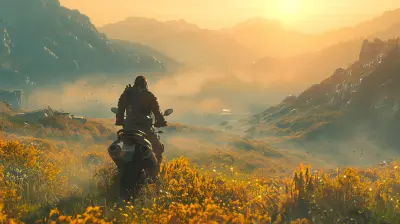
The Sandbox Effect: Why More Gamers Are Obsessed with Open-World Creativity

How Updates Can Worsen Pay to Win Dynamics

Understanding the Role of Analytics in Game Development

The Rise of AAA Game Development Costs and Its Effects on the Market

Economy vs Military: Striking the Perfect Balance in Strategy Games
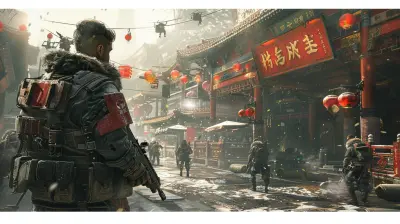
From Gritty to Vibrant: Exploring the Visual Styles of Third-Person Shooters
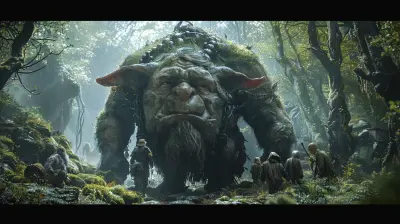
Exploring the Differences Between Public and Private Betas